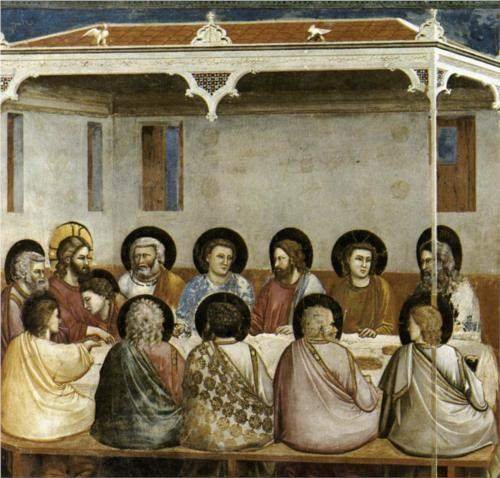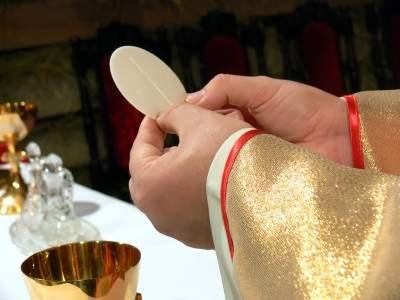Every week when my parents get home from their church and I get home from my Mass, they ask me “how church was.” Growing up Protestant, this was a common way of talking. “Church sure was good.” “That was a good service.” Just yesterday, they came home telling me how “good” their church was. Now, as a Catholic, I’m struck by how foreign this mode of speech has become, and I’m never quite sure how to respond.
They mean, of course, that the sermon was good, edifying or inspiring, or that the worship was stirring or emotional. Which are good things. That’s why Protestants go to church — to hear good preaching, or experience good worship, or have good fellowship.
But that’s not why Catholics go to Mass. We go to Mass for the Eucharist — to partake in the intimate communion of Holy Communion; to share in the Body and Blood, Soul and Divinity of Jesus Christ; to receive Him in person, in our person and in His person. And that is always good — beyond good; it is divine.
So asking a Catholic if “church was good” is like asking if Jesus is good. Why yes, of course it was good. The homily could have been dull, and the music could have been grating; but Jesus was there in the Eucharist. He came to meet me, to touch me and be with me. How can that be anything but good, wonderful, awesome, overwhelming? Evangelicals like to brag that their faith is not a religion, but a relationship, and yet they only experience Christ in the abstract in their services, through their singing and someone else’s preaching.
It strikes me, too, that I never really understood what “Communion” was about as a Protestant. Who is it that we were supposed to be having “Communion” with, and in what way? I guess many Protestants think of it as a meal in common, a symbolic gesture of unity, a sign that the church is together in following and serving the Lord. They are sitting down to a meal, symbolically, with each other and with Jesus. But the very term Communion evinces something much deeper and more intimate, and I can now see why many Protestants shy from it, calling it instead only the Lord’s Supper. But St. Paul himself testifies to what it is:
The cup of blessing that we bless, is it not a communion [Greek κοινωνία (koinōnía), often translated participation or sharing] in the blood of Christ? The bread that we break, is it not a communion in the body of Christ? Because there is one bread, we who are many are one body, for we all partake of the one bread.
(1 Corinthians 10:16–17)



